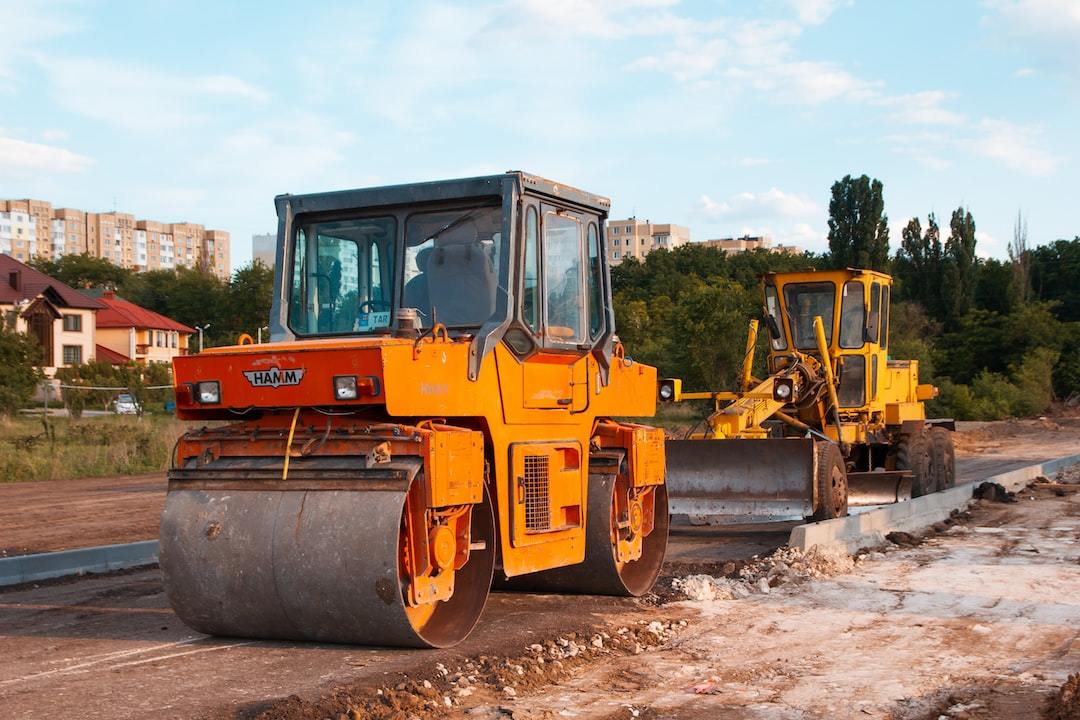Road Paving Tools are a game-changer in the construction industry.
Indeed, when it’s time to pave that perfect road, their #1 challenge is…
Finding the right road paving tools.
Many have NO clue where to start. But this is what separates an amateur from a professional paver. If you don’t know how to choose your tools wisely and use them effectively, you’ll never reach top-tier paving quality.
The Importance of Asphalt Paving Equipment
When it comes to paving jobs, asphalt paving equipment plays a pivotal role in the process. The right tools can significantly enhance quality and efficiency when creating perfect asphalt pavement finishes. These machines are not just about ensuring smooth operations; they directly impact your final surface.
Factors to Consider When Choosing a Paver
Picking out suitable pavers isn’t as simple as one may think – there are several key features that need careful consideration. One such factor is project size; larger projects often require more robust machinery, while smaller ones could be managed with less complex devices.
Beyond this, understanding the type of surface area you’ll be working on – from county roads or commercial parking lots – each demands different specifications from their respective pavers. And let’s not forget budget constraints which always play a crucial part when deciding between new or used models, buying outright, or leasing over time.
The Role of Maintenance and Repair
Maintenance isn’t merely about keeping things clean after every use; regular checks help identify potential issues before they become costly repairs down the line. This includes tasks like checking fluid levels (oil & hydraulic) and inspecting worn parts for damage, amongst others. These valuable tips would come in handy in maintaining and repairing your asphalt paving equipment properly, thereby extending its lifespan considerably.
In addition to routine maintenance practices, having protocols set up for handling unexpected breakdowns can save precious time during critical operations. This means having spare parts readily available at all times so work doesn’t get delayed due to existing pavement distresses causing unforeseen malfunctions with machinery. Additional safety protocols must also be put into place during repair procedures so workers’ safety remains uncompromised throughout this process.
In essence, these considerations aren’t simply important but vital towards achieving high-quality results consistently across various HMA surfaces using appropriate ground contact area methods along with other relevant techniques employed within this industry today.
Unveiling The Top Roadbuilding Equipment of 2023
In the realm of road construction, equipment advancements in 2023 have been pivotal. The paving process has seen remarkable enhancements with improved efficiency and quality outcomes.
Spotlight on Milling Machines
Cold milling machines stand at the forefront when it comes to preparing the existing pavement’s surface area for resurfacing. Their design facilitates the removal of the distressed surface layer while preserving underlying structures – an essential step before applying new asphalt binder.
- BOMAG’s cold milling machines come equipped with advanced machine control systems that enhance accuracy during operation.
- Roadtec offers innovative solutions like RX-700e/ex and RX-900e/ex models, which feature four-track steering offering better maneuverability.
The Role of Additional Road Equipment
Apart from pavers or compactors, other vital machinery such as dump trucks or material delivery systems like bottom dump trucks ensure efficient transfer between different points within a paving site.
Felling Trailers’ Air Bi-Fold Ramp system exemplifies these additional pieces due to its unique design enhancing safety protocols during loading/unloading operations. Check out some valuable tips here.
Sany’s SMG200C-8 motor grader holds versatility in creating grooved surfaces necessary for proper water drainage on county roads and highways. Find more about Sany’s Motor Graders here.
Innovations in Asphalt Paving Technology
Asphalt paving is a field that’s constantly progressing, and the newest developments are propelling it to new heights. Technologies like real-time monitoring of asphalt temperature during the paving process have become game-changers for achieving consistent results.
The introduction of concrete sensors has also been a significant advancement. These devices monitor various aspects related to concrete curing, greatly enhancing efficiency and precision on construction sites.
Smart Concrete Sensors
A standout innovation comes from Maturix with their Smart Concrete Sensors, which provide wireless monitoring capabilities for concrete curing processes. The sensor keeps track of parameters such as temperature and strength development throughout each stage of curing.
This data-driven approach allows contractors to make informed decisions based on accurate insights into how their mix behaves under specific conditions. Maturix’s website provides more information about these innovative smart concrete sensors, which are transforming traditional practices into efficient methods backed by hard data.
Real-Time Paving Data Monitoring
Vogele WITOS Paving Docu offers another example of how modern technology is reshaping asphalt paving operations. This tool enables real-time data monitoring, providing transparency over every phase of the material delivery system through final compaction and leading to improved productivity and cost-effectiveness across all county roads or any existing pavement surface area being worked upon.
The digital solution collects key performance indicators (KPIs) such as equipment speed or ground contact area, among others, at each work progress stage. You can learn more about Vogele WITOS Paving Docu here, a product that consistently exemplifies how technological advancements streamline operational procedures while maintaining high-quality output standards.
All this goes hand-in-hand with machinery’s additional safety protocols ensuring better quality and safer working environments.
Cost Considerations for Asphalt Paving Equipment
Purchasing or renting asphalt paving equipment is a significant investment, and understanding the cost implications can help you make an informed decision. Here’s what to consider when budgeting for your next piece of machinery.
1. Analyzing Purchase Price vs. Rental Cost
The initial question that comes up while acquiring asphalt paving equipment is whether buying outright or leasing would be more economical. Purchasing may seem like a hefty expense upfront but could save money in the long run if you have regular pavement jobs on hand.
Renting might appear as an attractive option if the requirement is sporadic or short-term; however, prolonged rental periods can accumulate substantial costs. Here are some valuable tips on maintaining and repairing your asphalt paving equipment which will extend its lifespan, thus saving money over time.
2. Understanding Maintenance Costs
Maintaining your asphalt pavers isn’t just about ensuring smooth operations. It’s also crucial from a financial standpoint. Regular preventive maintenance checks allow early detection of potential issues before they turn into expensive repairs.
Incorporating routine oil changes, filter replacements, and inspections of key components such as belts and hoses into your maintenance program helps keep these costs under control. Note: Ignoring minor problems today often leads to major breakdowns tomorrow, and those come with hefty repair bills.
3. Evaluating Fuel Efficiency
Fuel consumption forms another considerable chunk of operating expenses associated with heavy machinery like dump trucks and material transfer vehicles used in creating perfect finishes on county roads.
A machine’s average miles per gallon (MPG) rating should be considered when comparing different models from various manufacturers—high-MPG machines not only save at the pump but also contribute towards environmental sustainability.
This becomes especially important considering fuel efficiency impacts both ground contact area performance and overall project budgets significantly.
Durability & Resale Value: An Overlooked Aspect?
The last yet vital factor influencing total ownership cost considerations involves durability and resale value – investing in durable bottom-dump trucks capable of withstanding harsh working conditions without frequent breakdown ensures longer service life, thereby reducing replacement needs and lowering total ownership costs significantly.
Moreover, a well-maintained piece of existing pavement resurfacing tool tends to hold its value well, so considering resale values upfront allows making smarter decisions that pay off down the line by offering higher returns during the reselling phase after the usage period ends. So always remember – better maintained means better retained…value-wise.
FAQs in Relation to Road Paving Tools
What are the materials used in road paving?
Road paving typically involves using asphalt, concrete, or composite material. The choice depends on factors like traffic volume and weather conditions.
What is a road paver machine called?
A road paver machine is commonly referred to as an “asphalt paver” or simply a “paver.” It spreads the asphalt evenly over the surface before compaction.
What do they use to pave the street?
To pave streets, professionals utilize tools such as asphalt mixers, pavers, rollers for compaction, and trucks for the transportation of materials.
What machines are used for paving?
Paving requires several types of machinery, including milling machines to prepare surfaces, pavers to spread asphalt or concrete evenly, and compactors/rollers for firming up surfaces.
Conclusion
Mastering the art of road paving is no small feat. The right tools are essential for achieving that perfect asphalt finish. Each tool has a unique role in the process, from pavers to rollers. Selecting the correct tools is essential for guaranteeing a successful asphalt outcome.
Maintenance and repair shouldn’t be overlooked either; they’re key to keeping your gear at peak performance. In 2023, we saw some groundbreaking roadbuilding equipment hit the market.
BOMAG, Dynapac, and LeeBoy have become synonymous with quality and innovation in our industry. New technologies like thermal mapping systems and smart concrete sensors are revolutionizing how we approach paving projects. Cost considerations? They’re always a factor when buying or renting asphalt paving tools but remember: value over price should guide your decisions.
At MD Paving Pros, our expert residential and commercial asphalt & concrete paving contractors help you navigate this complex world of road paving tools. Join us on this journey towards creating flawless pavements while ensuring efficiency in every step.




